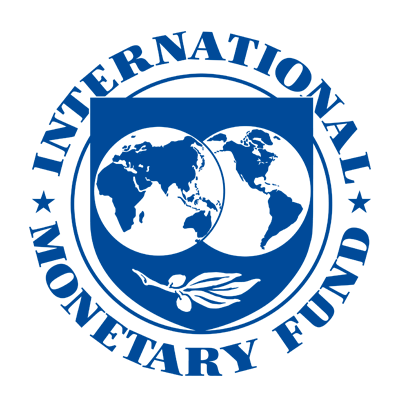- Gibson Dunn Advises CACI International on Acquisition of ARKA Group from Funds Managed by Blackstone Tactical Opportunities for $2.6 Billion Gibson Dunn
- CACI expands space, defense footprint with $2.6 billion ARKA buy Yahoo Finance
- Danbury defense contractor to be acquired in $2.6B deal Hartford Business Journal
- CACI: $2.6B acquisition boosts space, AI, and intelligence capabilities, driving long-term growth TradingView — Track All Markets
- CACI’s ARKA Deal Targets Classified Space Sensors And Optics Finimize
Please be advised that the following department and service closures will occur for the Christmas Holiday:
- Wednesday, December 24th through Friday, December 26th
EMERGENCY DEPARTMENT will be open 24 hours for health emergencies.
If you have a medical emergency, please call 911.
If you are in crisis and need to talk with a counselor, please call or text 988.
The CCH Walk-In Clinic: Will be open 12/24, 8:00AM – 6:00PM, last patient taken at 5:30PM. Walk-In Clinic will be open 12/25, 8:00AM – 1:00PM, last patient taken at 12:30PM. Will be open 12/26 for regular business hours.
If you have questions, please call 307.688.1000.
Campbell County Health
- CCH Accounting Department will be closed on Wednesday, 12/24 from 12:00PM on, and closed Thursday, 12/25 and Friday, 12/26.
- CCH Administration will be closed on Wednesday 12/24 from 12:00PM on, and closed Thursday, 12/25 and Friday, 12/26.
- CCH Audiology will be closed on Thursday and Friday.
- CCH Behavioral Health Services will be closed on Wednesday, Thursday and Friday. On-call crisis coverage is available 24/7.
- CCH Biomed will be closed Thursday and Friday.
- CCH Cafeteria will be open reflecting weekend hours Thursday and Friday. Breakfast: 8:30 – 9:30 AM; Lunch 12:00 – 1:00PM; Dinner 5:30 – 6:30PM.
- CCH Cardiac Cath Lab will be closed Wednesday 12/24 from 12:00PM on. Closed Thursday 12/25, and open Friday 12/26 from 8:00 PM – 12:00 PM.
- CCH Cardiac Rehab will be closed Thursday and Friday.
- CCH Case Management will be closed on Wednesday 12/23 from 12:00PM on, and closed Thursday and Friday.
- CCH Chaplain Services will be available on-call.
- CCH Childcare Center will be closed Thursday 12/25 and open for staff on-shift Friday 12/26.
- CCH Coffee Shop will be closed Thursday and Friday.
- CCH Customer Assistants will be unavailable Thursday 12/25.
- CCH Emergency Medical Services will be open 24 hours every day for any health emergencies.
- CCH Emergency Medical Services Care Management will be closed on Thursday 12/25 and available as needed Friday 12/26.
- CCH Emergency Department will be open 24 hours every day for any health emergencies
- CCH Environmental Services will be running on weekend staff for coverage on Thursday and Friday.
- CCH Gift Shoppe will be closed on Thursday and Friday.
- CCH Home Health and Hospice will be closed on Thursday, and coverage is available on-call.
- CCH Home Medical Resources office will be closed Thursday and Friday. On-call coverage is available for emergencies.
- CCH Human Resources will be closed Wednesday, 12/24 from 12:00 PM on, and closed Thursday, 12/25 and Friday, 12/26.
- CCH Information Technology will be closed Thursday and Friday. On-call coverage is available.
- CCH Antibiotic Infusions will be open Thursday and Friday for scheduled appointments only. (doors will unlock and lock at the same time as Walk-in Clinic).
- CCH Laboratory will be closed on Thursday and Friday. Staff will be available for specimen drop-offs and labs that must be drawn that day as needed.
- CCH Legacy Bistro will be closed Thursday and Friday.
- CCH Medical Oncology will be open Wednesday 12/24 from 8:00AM- 12:00 and closed on Thursday and Friday.
- CCH Marketing and Volunteer Services will be closed on Wednesday 12/24 from 12:00PM on, and closed Thursday and Friday.
- CCH Materials Management will be closed on Thursday and Friday.
- CCH Medical Records will be closed Wednesday 12/24 from 1:00PM on and will be closed Thursday 11/25.
- CCH Patient Access (Registration), near the main entrance of CCH, will be closed from 1:00PM on Wednesday 12/24 and will be closed on Thursday 12/25.Patient Access at the Emergency Department is open both Thursday and Friday.
- CCH Patient Experience will be closed Thursday and Friday.
- CCH Patient Financial Services will be closed from 1:00PM on Wednesday 12/24 and will be closed on Thursday 12/25.
- CCH Pharmacy CCH Pharmacy will be open from 6:00AM – 6:00PM Thursday-Sunday. Pharmacist will be on call, and all after-hour orders will be verified in the mornings, as usual.
- CCH Professional Development will be closed Thursday and Friday.
- CCH Pulmonary Clinic will be closed Wednesday 12/24, Thursday,12/25 and Friday 12/26.
- CCH Quality will be closed on Wednesday, 12/24 from 12:00PM on, and closed Thursday and Friday.
- CCH Radiology will be closed for outpatient services on Wednesday 12/24 and Thursday 12/25 with limited staff for emergencies.
- CCH Radiation Oncology will be closed Thursday and Friday.
- CCH Rehabilitation Services will be closed Thursday 12/25 and Friday 12/26 but will care for wound care patients and inpatients at CCH.
- CCH Respiratory Therapy No outpatient testing or administrative support on Wednesday 12/24 Thursday 12/25 and Friday 12/26.
- CCH Revenue Cycle will be closed at 1:00PM on Wednesday 12/24 and closed Thursday 12/25.
- CCH Risk Management will be closed on Wednesday, 12/24 from 1:00PM on, and closed Thursday, 12/25 and Friday, 12/26.
- CCH Sleep Center will be closed Wednesday 12/24, Thursday 12/25 and Friday 11/26.Nighttime sleep studies will still be conducted.
- CCH Surgical Services will be closed on Wednesday 12/24 from 12:00PM on, and closed Thursday, 12/25 and Friday, 12/26.
- CCH Wellness will be closed Thursday and Friday.
- CCH WYOS will be open Wednesday 12/24 from 8:00AM – 11:00AM. WYOS will be closed Thursday 12/25 and Friday 12/26.
Clinics
- CCMG Audiology will be open Wednesday 12/24 from 8:00AM- 12:00PM, will be closed on Thursday 12/25 and Friday 12/26.
- CCMG Cardiology will be open Wednesday 12/24 from 8:00AM- 12:00PM, will be closed on Thursday 12/25 and Friday 12/26.
- CCMG Family Clinic in Hulett will be open Wednesday 12/24 from 8:00AM- 12:00PM and will be closed Thursday 12/25.
- CCMG Main Clinic
- Family Practice– will be open Wednesday 12/24 from 8:00AM- 12:00PM. Will be closed Thursday 12/25 and Friday 12/26.
- Geriatrics– will be open Wednesday 12/24 from 8:00AM- 12:00PM. Will be closed Thursday 12/25 and Friday 12/26.
- Neurology– will be open Wednesday 12/24 from 8:00AM- 12:00PM. Will be closed Thursday 12/25 and Friday 12/26
- Pediatrics– will be open Wednesday 12/24 from 8:00AM- 12:00PM. Will be closed Thursday 12/25 and Friday 12/26
- Urology– will be open Wednesday 12/24 from 8:00AM- 12:00PM. Will be closed Thursday 12/25 and Friday 12/26
- CCMG Occupational Health will be open Wednesday 12/24 from 8:00AM- 12:00PM. Will be closed Thursday 12/25 and Friday 12/26.
- CCMG Third Floor Clinics
- Diabetes/Nutrition Education– will be open Wednesday 12/24 from 8:00AM- 12:00PM. Will be closed Thursday 12/25 and Friday 12/26
- Complex Medicine– will be open Wednesday 12/24 from 8:00AM- 12:00PM. Will be closed Thursday 12/25 and Friday 12/26
- CCMG Kid Clinic Will be open Wednesday 12/24 from 8:00AM-12:00PM and closed Thursday 12/25. Will be open Friday 12/26 from 8:00AM – 5:00PM.
- CCMG Walk-in Clinic Will be open 12/24, 8:00AM – 6:00PM, last patient taken at 5:30PM. Walk-In Clinic will be open 12/25, 8:00AM – 1:00PM, last patient taken at 12:30PM. Will be open 12/26 for regular business
- CCMG Wright Clinic Will be open Wednesday 12/24 from 8:00AM- 12:00PM. Will be closed on Thursday 12/25 and Friday 12/26.







